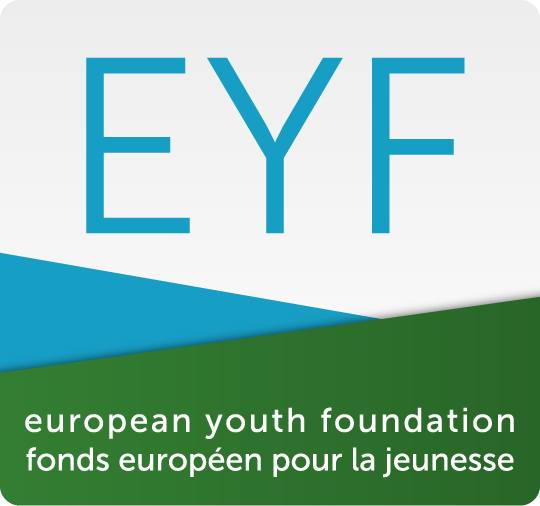Youth Sector Priorities
Find out below more about the funding priorities of the youth sector for 2022-25. The priorities for funding from the EYF are
- Revitalising pluralistic democracy
- Young people’s access to rights
- Living together in peaceful and inclusive societies
- Youth work.
Detailed priorities 2024
For projects starting in 2024, the sub-priorities are:
Priority 1: Revitalising pluralistic democracy (includes 4 sub-priorities)
-
- Advocating for the right of young people to exercise their right to assemble and to freely form, join and be active in associations, expanding the space for youth civil organisations to develop and advancing young people’s participation in political processes, removing economic inequality and injustice in youth political participation.
- Understanding the impact of artificial intelligence and supporting youth participation in artificial intelligence and Internet governance processes.
- Implementation of the Revised European Charter on the Participation of Young People in Local and Regional Life by developing the capacity of youth organisations to facilitate participation of young people in decision-making processes at local level, with a focus on young people in rural areas, from minorities, or vulnerable groups.
- Understanding and addressing the impact of the climate crisis and environmental degradation on young people and democracy; addressing the right of young people to benefit from a healthy environment.
Priority 2: Young people’s access to rights (includes 6 sub-priorities)
-
- Implementing the Committee of Ministers’ Recommendation CM/Rec(2016)7 on young people’s access to rights.
- Implementing the Committee of Ministers’ Recommendation CM/Rec(2015)3 on the access of young people from disadvantaged neighbourhoods to social rights (ENTER! Recommendation).
- Human rights education with young people (continuing the Human Rights Education Youth Programme).
- Information, data and media literacy with children and young people.
- Ensuring an increased focus on mental health and mental well-being, addressing the impact of the Covid-19 pandemic on young people and the need for provisions of free and accessible mental health services, with an intersectional approach.
- Further introducing rights-based approaches into youth policies, programmes and projects.
Priority 3: Living together in peaceful and inclusive societies (includes 4 sub-priorities)
-
- Combating all forms of discrimination, racism and exclusion, including structural forms, with a specific focus on:
- Roma youth participation and combating antigypsyism;
- social inclusion of young refugees and their transition from childhood to adulthood;
- multiple discrimination and intersectionality (including gender equality, sexual orientation, gender identity and disability).
-
- Enabling young people to promote peaceful societies by providing them with opportunities to play an active role in:
- Intercultural dialogue, peacebuilding and conflict transformation
- Co-operation with neighbouring and other world regions.
-
- Enhancing the inclusion and participation of young people in rural communities.
- Promoting the access to quality services for mental health and well-being, as well as opportunities for personal development for young refugees and all young people in and from war zones, with particular focus on young people facing multiple forms of discrimination.
Priority 4: Youth work (includes 4 sub-priorities)
-
- Dissemination and implementation of Committee of Ministers’ Recommendation CM/Rec(2017)4 on youth work and promoting a European youth work agenda.
- Quality development and recognition of youth work and non-formal education and learning.
- Pursuing quality development and innovation (including digitalisation) in capacity-building activities.
- Developing support measures to youth work in war zones and areas of conflict, with a view to strengthening youth workers’ capacity to help young people living in such zones.



